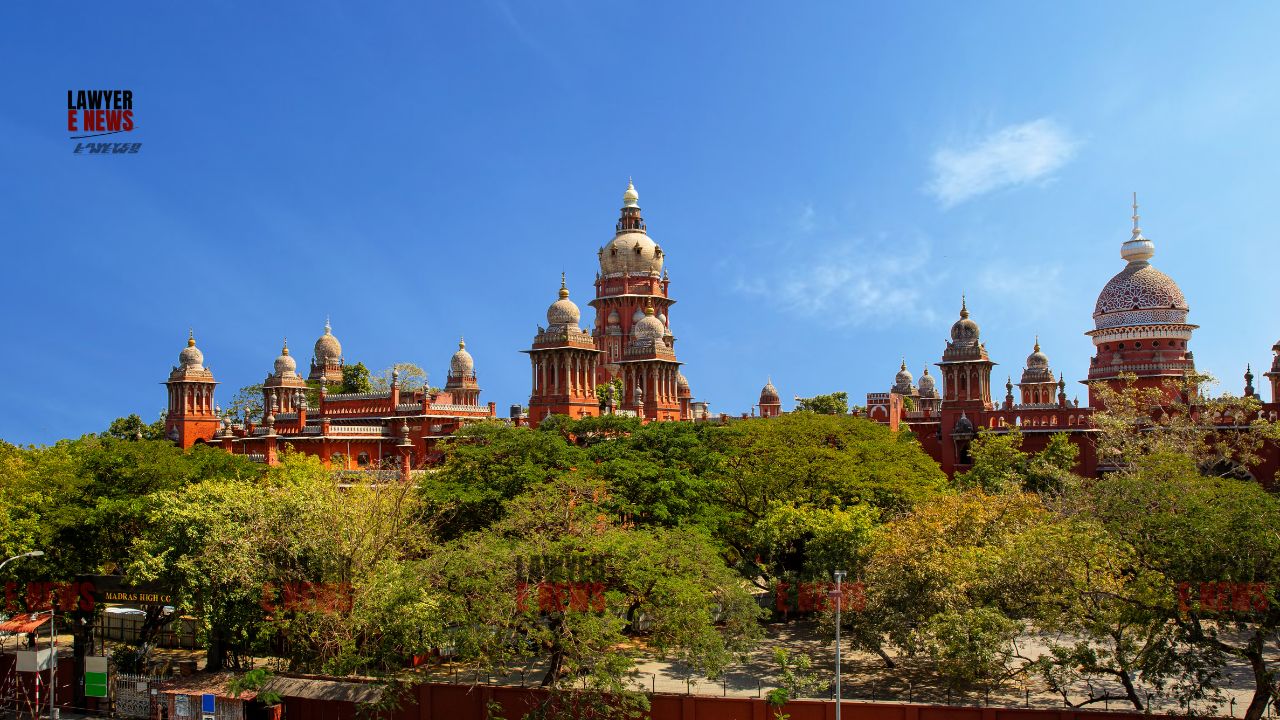-
by Admin
15 February 2026 5:35 AM



Madras High Court dismissed the criminal appeals of Mohammed Imathathullah Alias Mohammed Yasin (A2) and Hakeem (A1) in the case of Crl.A.Nos. 624 of 2018 & 51 of 2019. The appellants challenged their conviction under Section 302 r/w 34 of the Indian Penal Code (IPC) for the murder of Vijay. The court upheld the life sentences handed down by the Trial Court, rejecting the defense’s arguments of discrepancies in the First Information Report (FIR) and inconsistencies in witness statements, reaffirming the principles of reliability of injured eyewitnesses and forensic linkage of recovered weapons.
Credibility of Injured Witnesses: "Eyewitnesses Withstood Arduous Cross-Examination"
The appellants primarily contended that the injured witnesses were unreliable and raised questions about contradictions in the FIR and the Accident Register. However, the court ruled that injured witnesses are "generally considered highly reliable" and emphasized that minor contradictions in their testimonies did not affect the overall credibility of the prosecution’s case.
The incident occurred on March 24, 2014, when the deceased Vijay and his family were on their way to lodge a police complaint against the appellants, following an altercation about the appellants’ public consumption of alcohol. The appellants ambushed Vijay and fatally stabbed him in broad daylight. His relatives, who attempted to intervene, also sustained injuries. Based on a complaint by Vijay’s brother, the FIR was promptly registered, and the appellants were arrested the following day. Blood-stained weapons were recovered from the appellants during interrogation.
The key legal questions revolved around the reliability of witness testimonies, the timing of the FIR, discrepancies in the Accident Register, and the validity of forensic evidence.
Discrepancies in the FIR and Accident Register: The defense argued that the 3-hour delay in filing the FIR and the mention of "unknown persons" in the Accident Register undermined the prosecution’s case. The court observed that the FIR reached the court before the preparation of the Accident Register and dismissed the discrepancy as irrelevant.
"The reference in the Accident Register... assumes no significance at all, as the name of the accused were found in the FIR, which reached the Court well before the Accident Register was made." [Para 13]
Reliability of Injured Witnesses: The appellants claimed that the injured witnesses had fabricated the incident and failed to assist the deceased. The court held that the core testimonies of multiple eyewitnesses remained consistent and that "minor contradictions did not affect the core issue."
"The testimony of such witnesses is generally considered to be very reliable, as they come with a built-in guarantee of their presence at the scene of the crime." [Para 15]
Discovery of Weapons and Forensic Evidence: The defense questioned the reliability of the forensic evidence, highlighting that the knives contained blood stains of two different groups. The court concluded that the presence of multiple blood groups was consistent with the injuries sustained by the witnesses and affirmed the prosecution’s forensic analysis.
"The prosecution has established the connection of the recovered weapon with the occurrence by proving the similarity of blood grouping between the blood stains on the weapon and the deceased’s dress." [Para 17]
The court systematically addressed the defense’s claims and upheld the conviction. It noted that the contradictions and delays in the FIR and Accident Register were not sufficient to cast doubt on the prosecution’s case. The testimonies of injured witnesses (PW1, PW2, and PW10) were deemed reliable, and forensic evidence linking the recovered weapons to the crime further bolstered the case.
The court rejected the argument that the presence of a second blood group on the recovered weapons undermined the prosecution’s case, stating that the defense had failed to establish how this weakened the prosecution's theory, especially when the blood of the deceased was confirmed to be on the knives.
The failure to cross-examine one of the eyewitnesses (PW3) was also noted by the court as further evidence that the defense's argument lacked merit.
"Minor contradictions relied upon are not in respect of the core issue involved in this case." [Para 19]
Ultimately, the court held that the prosecution had proven its case beyond a reasonable doubt and affirmed the appellants' life imprisonment sentences.
The Madras High Court, in its detailed analysis, dismissed the appeals and upheld the trial court’s conviction of life imprisonment under Section 302 r/w 34 IPC. The court reaffirmed that minor discrepancies, particularly in cases involving injured witnesses, do not negate the overall reliability of the prosecution’s evidence, especially when corroborated by forensic results.
Date of Decision: 19/09/2024
Mohammed Imathathullah Alias Mohammed Yasin (Appellant/A2) & Hakeem (Appellant/A1) vs. The State represented by the Inspector of Police, Maduravoyal Police Station, Chennai
